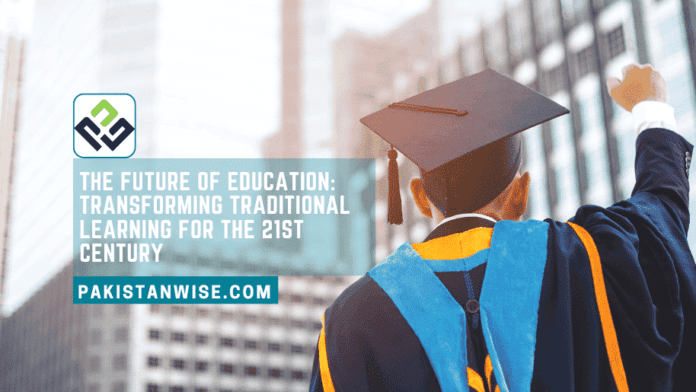Introduction of Future of Education
Education is the foundation of societal progress and individual growth. As we step into the 21st century, advancements in technology have brought about significant changes in various domains, including education. The traditional model of learning is gradually transforming to meet the demands and challenges of a rapidly evolving world. This article aims to provide a detailed analysis of The Future of Education: Transforming Traditional Learning for the 21st Century, exploring its significance, current trends, and future prospects.
Significance of Transforming Traditional Learning
The significance lies in bridging the gap between traditional learning methods and the ever-changing needs of society. With rapid technological advancements disrupting industries worldwide, it is crucial for education systems to adapt accordingly. By embracing innovative practices and leveraging technology effectively, educators can create a more engaging, personalized, and inclusive educational experience.
Current Trends in Educational Transformation
- Personalized Learning: One prominent trend shaping education’s future is personalized learning. Individualized instruction tailored to each student’s unique abilities, interests, and learning styles empowers students to take ownership of their educational journey.
- Blended Learning Models: Combining online resources with traditional classroom teaching has gained popularity due to its flexibility and accessibility. Blended learning models encourage self-paced study while maintaining vital face-to-face interactions between students and teachers.
- Gamification: Gamifying elements within educational activities enhances engagement by making learning interactive and enjoyable through game-like experiences that reward progress or achievements.
- Online Collaboration Tools: Technology allows students from different regions or countries to collaborate on projects virtually using platforms like Google Docs or video conferencing tools such as Zoom or Microsoft Teams.
- Project-Based Learning (PBL): PBL focuses on real-world problem-solving skills by engaging students in hands-on projects that promote critical thinking, teamwork, creativity, communication skills development.
Future Prospects for Educational Transformation
- Artificial Intelligence (AI): AI has the potential to transform education by personalizing learning further, automating administrative tasks, and providing intelligent tutoring systems that adapt to individual needs.
- Virtual Reality (VR) and Augmented Reality (AR): Immersive technologies like VR and AR can create simulated environments, enabling students to explore distant places or historical events, enhancing experiential learning.
- Data Analytics: The future of education lies in harnessing the power of data analytics to gain insights into student progress, identify learning gaps, and provide targeted interventions for personalized instruction.
- Global Collaboration: With improved connectivity and enhanced communication tools, collaboration between students from diverse cultural backgrounds will become more prevalent in fostering global understanding.
- Lifelong Learning: Given the rapid pace of technological advancements, individuals need continuous skill development throughout their lives. Online platforms offering flexible courses will play a crucial role in facilitating lifelong learning opportunities.
Related Article: 20 Reasons Why International Students, Including Pakistanis, Should Choose Canada for Higher Education
Conclusion
The Future of Education: Transforming Traditional Learning for the 21st Century holds immense significance as it seeks to adapt educational systems to meet the demands of an ever-changing world driven by technology and innovation. Current trends such as personalized learning, blended models, gamification, online collaboration tools, and project-based learning are already reshaping traditional educational practices.
Looking ahead, prospects for educational transformation include leveraging emerging technologies like AI-powered personalized instruction methods or immersive experiences with VR/AR technology. Additionally, data analytics will enable educators to make informed decisions about individualized instruction strategies while promoting global collaboration among students from diverse backgrounds.

